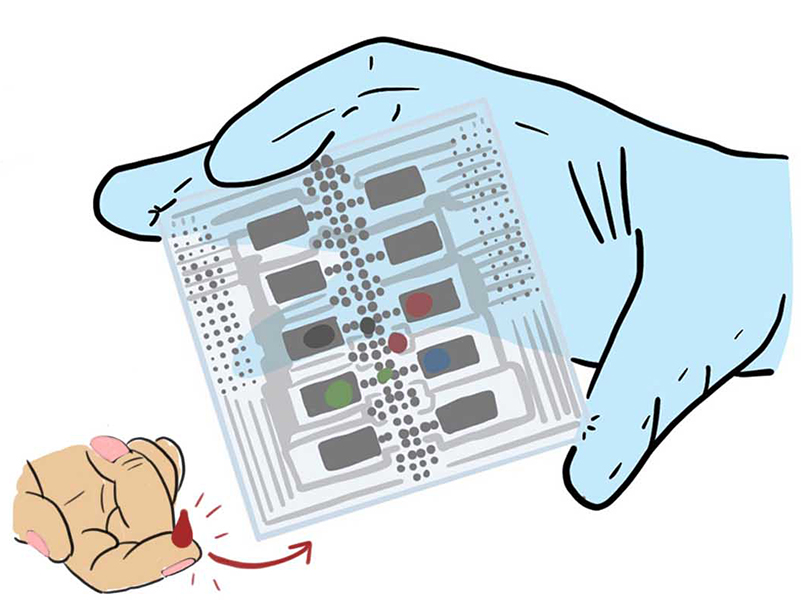If you’re among the one million Canadians living with heart failure – a weak or damaged heart from a heart attack, high blood pressure, disease or a defect – you know how important it is to be monitored regularly. But this can be challenging if you live in a remote area, where getting bloodwork done or seeing a specialist could mean lengthy travel, delays in treatment and poorer patient outcomes.
Now imagine if you had a compact device that, with a tiny pinprick of blood, could measure cardiac biomarkers that indicate a heart attack or worsening congestive heart failure, give results within 45 minutes, and communicate wirelessly with health-care providers who could remotely prescribe treatment?
This cardiac-based “lab on a chip” is one of the projects under development at Transform Heart Failure, an initiative of the Ted Rogers Centre for Heart Research that aims to address inequities in care and revolutionize treatment for all heart failure patients.
Anthony Yong, a master’s student in the department of chemistry and a Transform Heart Failure Trainee Award winner, designed the device to use digital microfluidics – tiny droplets of chemicals that are manipulated on a platform of electrodes. The size of a credit card, the device is affordable, accurate and simple to use.
Field testing in Northern Ontario, in partnership with Indigenous health authorities and patients, is expected to begin in the next year or two. “The motivation to increase availability of these tests to Indigenous communities is because they have the least access to treatment,” says Yong.
Recent Posts
U of T’s 197th Birthday Quiz
Test your knowledge of all things U of T in honour of the university’s 197th anniversary on March 15!
Are Cold Plunges Good for You?
Research suggests they are, in three ways
Work Has Changed. So Have the Qualities of Good Leadership
Rapid shifts in everything from technology to employee expectations are pressuring leaders to constantly adapt






